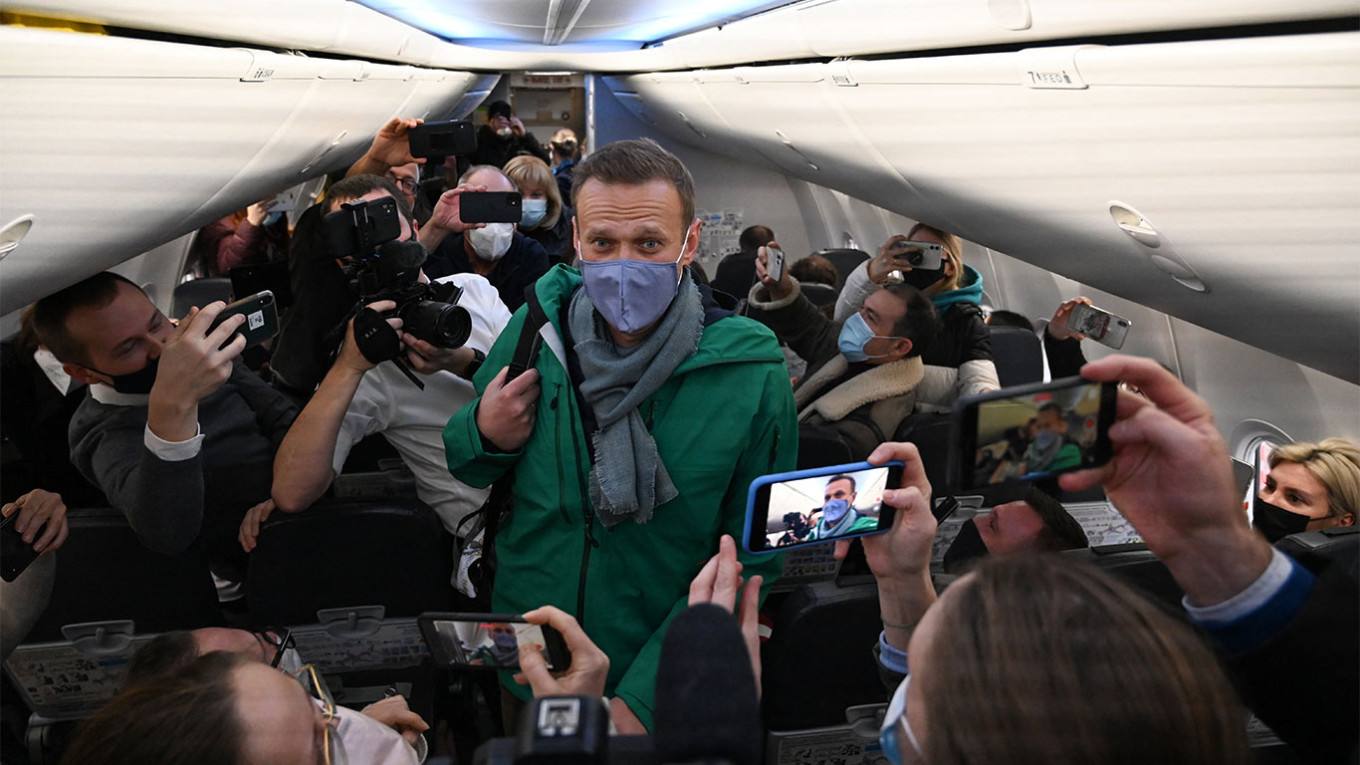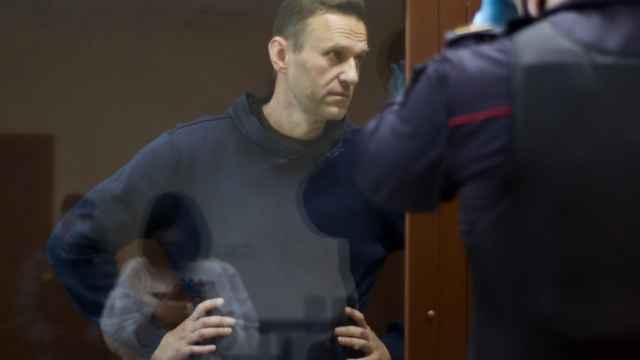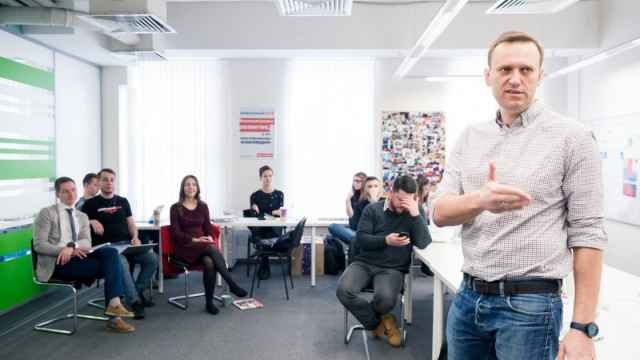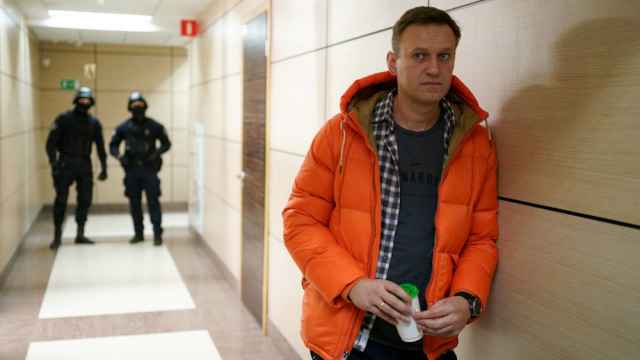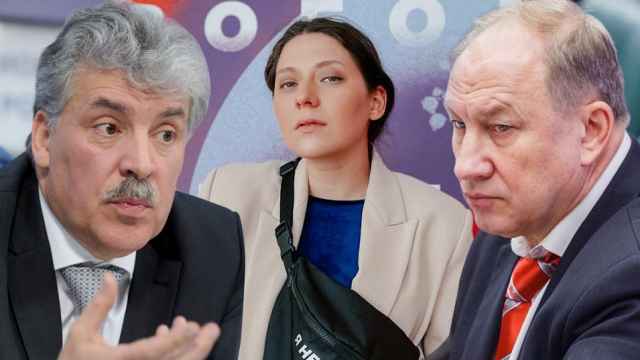Kremlin critic Alexei Navalny has died in the Arctic prison colony where he was serving his sentence, Russia’s prison service announced Friday.
Navalny’s spokeswoman Kira Yarmysh said his team could not confirm the prison service’s announcement until his lawyer visits the IK-3 prison colony in the settlement of Kharp.
Navalny, 47, has been one of President Vladimir Putin’s most vocal opponents over the past decade and was jailed after he survived a near-fatal poisoning in 2020. He was designated a prisoner of conscience by Amnesty International in 2021, with many foreign leaders calling for his release.
Here is a roundup of how Navalny’s allies, Russian officials, Russian public figures and world leaders have reacted to the announcement of his death:
Navalny’s allies
“We have no reason to believe state propaganda. If this is true, then not 'Navalny died,' but ‘Putin killed Navalny’ and only that. But I don't trust them one penny,” Navalny’s ally Leonid Volkov said.
Navalny’s wife Yulia Navalnaya, in a short address to the Munich Security Conference, called on the international community to hold the Putin regime accountable for her husband’s death.
His mother, Lyudmila Navalnaya, said: “I don't want to hear any words of sympathy. My son was seen in prison on the 12th. He had a visit. He was alive, healthy and cheerful.”
Russian officials
“In accordance with all current rules, the FSIN [Federal Penitentiary Service] carries out all checks,” Kremlin spokesman Dmitry Peskov said, adding that Putin had been informed about Navalny’s reported death.
Later Friday, Peskov blasted Western countries that pointed the finger at Moscow as "absolutely unacceptable," and said their reaction was "hysterical."
“The immediate reaction of the leaders of NATO countries to Navalny’s death in the form of direct accusations against Russia is self-exposing. There is no forensic examination yet, but the West’s conclusions are already ready,” said Foreign Ministry spokeswoman Maria Zakharova.
The ruling, pro-Kremlin United Russia party has asked its members not to comment on Navalny’s alleged death, the Agentsvo investigative outlet reported.
“Washington and Brussels are to blame for Navalny’s death,” State Duma Speaker Vyacheslav Volodin said.
Foreign politicians
“Make no mistake: Putin is responsible for Navalny’s death,” said U.S. President Joe Biden. “Putin does not only target citizens of other countries, as we’ve seen in what’s going on in Ukraine right now — he also inflicts terrible crimes on his own people.”
“It’s clear he was killed by Putin, like thousands of others who were tortured because of this one creature. Putin doesn’t care who dies, as long as he maintains his position,” said Ukrainian President Volodymyr Zelensky.
“We need to establish all the facts, and Russia needs to answer all the serious questions about the circumstances of his death,” NATO Secretary-General Jens Stoltenberg said.
“This is terrible news. As the fiercest advocate for Russian democracy, Alexei Navalny demonstrated incredible courage throughout his life,” said U.K. Prime Minister Rishi Sunak. “My thoughts are with his wife and the people of Russia, for whom this is a huge tragedy.”
“In today's Russia, free spirits are put in the gulag and sentenced to death. Anger and indignation. I salute the memory of Alexei Navalny, his commitment, his courage. Thoughts for his family, his loved ones and for the Russian people,” wrote French President Emmanuel Macron.
“Whatever your thoughts about Alexey @Navalny as the politician, he was just brutally murdered by the Kremlin. That’s a fact and that is something one should know about the true nature of Russia’s current regime. My condolences to the family and friends,” Latvia's President Edgars Rinkevics said on X (formerly Twitter).
“I am shocked by the news of Alexei @navalny's death. My heart is with his family today. This tragedy is further proof that for dictators, human life holds no value. I urge the global community to act now to protect my husband & other political prisoners, who are in great danger,” wrote exiled Belarusian opposition leader Sviatlana Tsikhanouskaya.
Russian public figures
“I’m praying that the information turns out to be untrue. Alexei is one of the most talented and courageous people I have known in Russia,” said disqualified pro-peace presidential hopeful Boris Nadezhdin.
“If this is true, then, regardless of the formal reason, Vladimir Putin personally bears responsibility for the premature death, as he first authorized the poisoning of Alexei and then put him in prison,” said exiled Kremlin critic Mikhail Khodorkovsky.
“Even if Alexei died from 'natural' causes, they were caused by his poisoning and further prison torture. The blood is on Putin's hands,” said ex-opposition politician Dmitry Gudkov.
“Last Tuesday, I heard an audio recording of his voice made during the court hearing, which took place the day before, on Monday. It was the voice of a healthy, energetic, non-exhausted person. When a person has torn ligaments, pneumonia, the heart does not work, or he is hungry, you can hear it in the voice — believe me as a teacher. A week ago he was healthy and full of energy. We are left with no versions other than murder,” political scientist Yekaterina Schulmann said.
“This is a crime committed by the regime. It is quite obvious. Whatever the circumstances of Alexei's death will be revealed, the regime was deliberately killing him. This is murder, this is a crime,” said veteran human rights campaigner Oleg Orlov, head of the Nobel Prize-winning Memorial group.
A Message from The Moscow Times:
Dear readers,
We are facing unprecedented challenges. Russia's Prosecutor General's Office has designated The Moscow Times as an "undesirable" organization, criminalizing our work and putting our staff at risk of prosecution. This follows our earlier unjust labeling as a "foreign agent."
These actions are direct attempts to silence independent journalism in Russia. The authorities claim our work "discredits the decisions of the Russian leadership." We see things differently: we strive to provide accurate, unbiased reporting on Russia.
We, the journalists of The Moscow Times, refuse to be silenced. But to continue our work, we need your help.
Your support, no matter how small, makes a world of difference. If you can, please support us monthly starting from just $2. It's quick to set up, and every contribution makes a significant impact.
By supporting The Moscow Times, you're defending open, independent journalism in the face of repression. Thank you for standing with us.
Remind me later.


